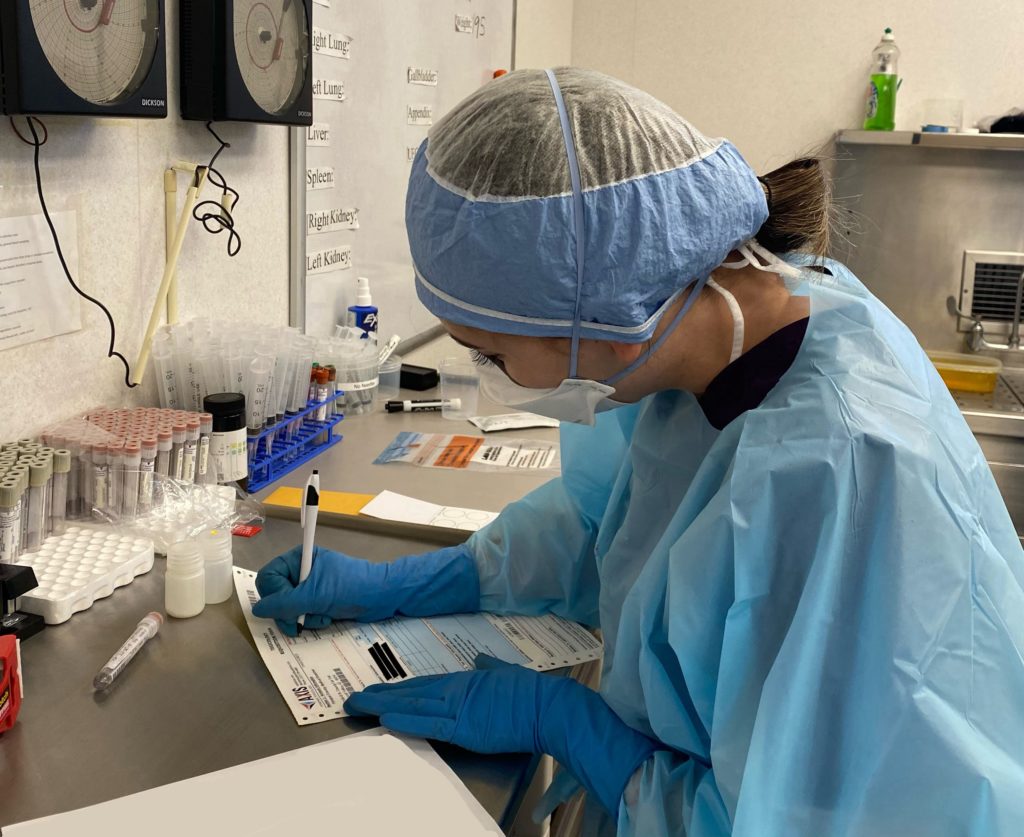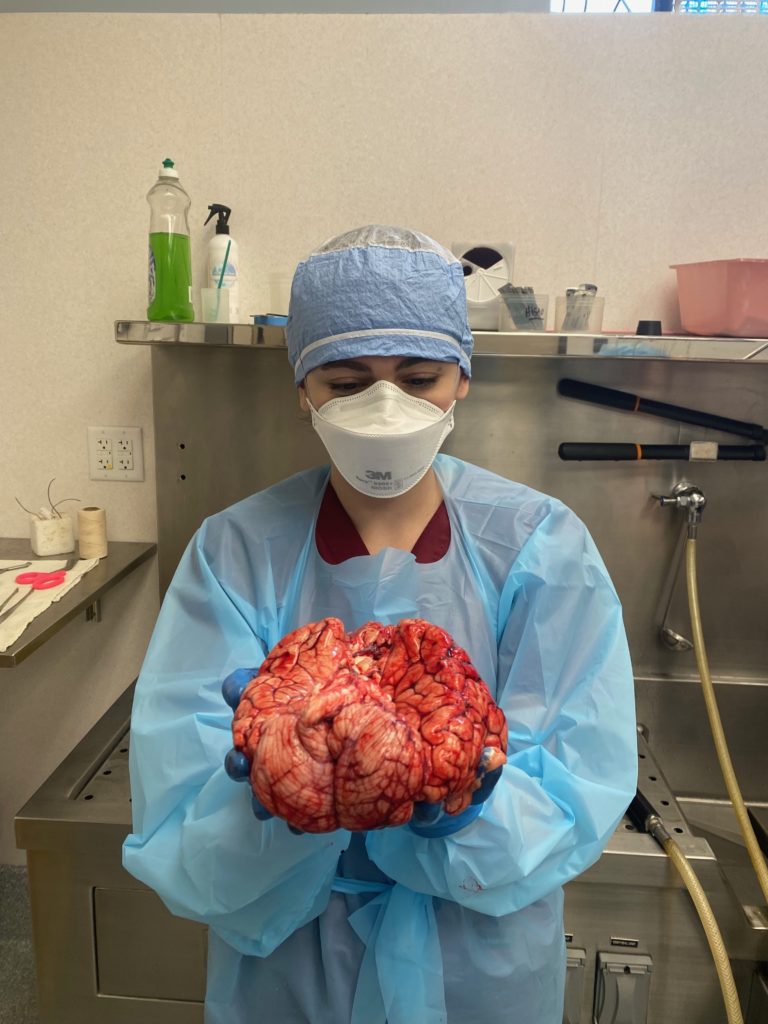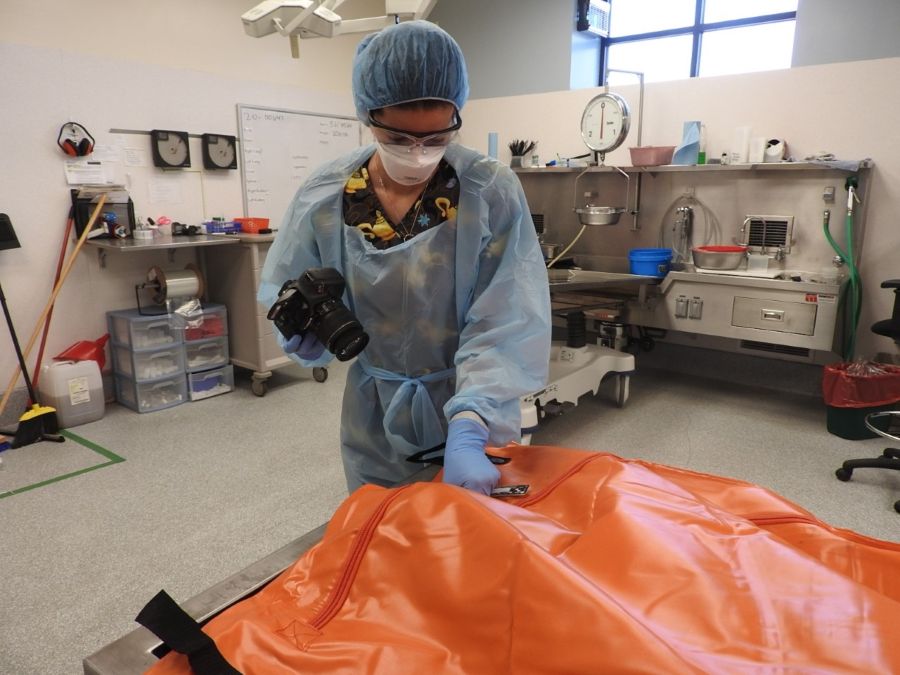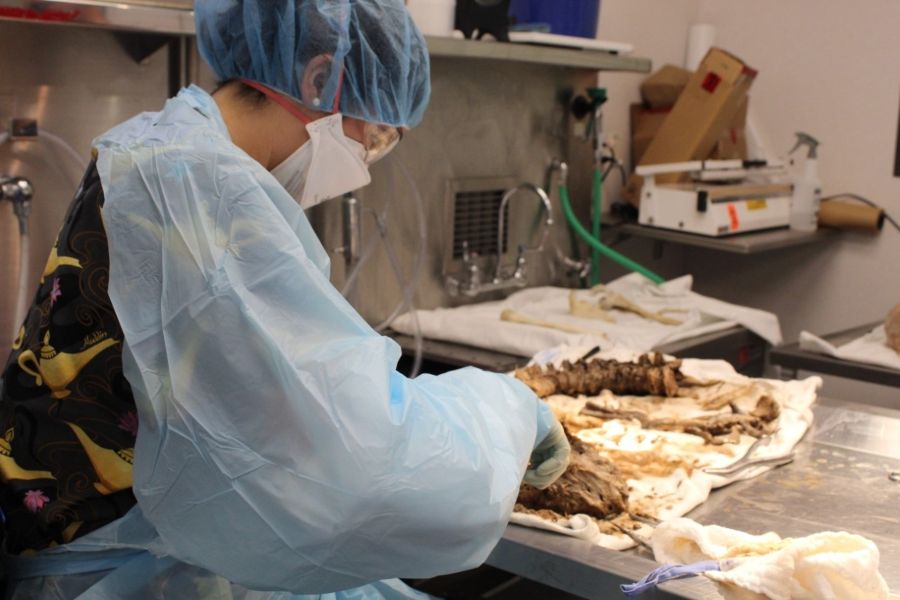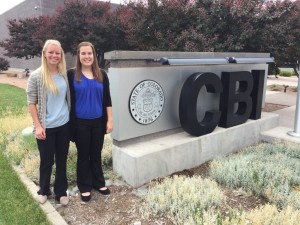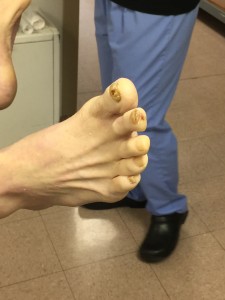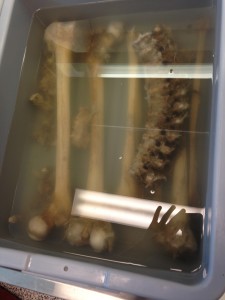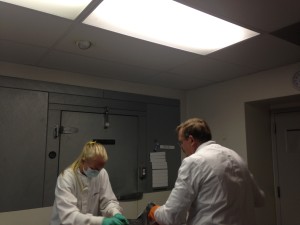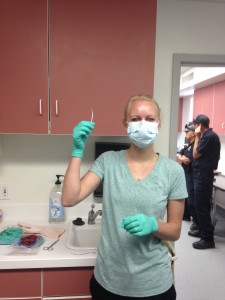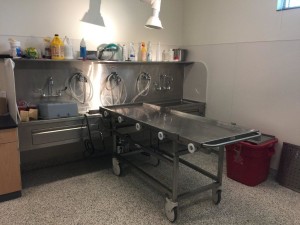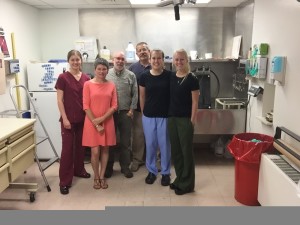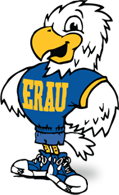by Gabriella Reece
Hello everyone! I’m Gabriella Reece, a current senior in the Forensic Biology program at Embry-Riddle Aeronautical University in Prescott, AZ.
I took my first forensic science course as a sophomore in high school and it immediately sparked my interest. I began looking around at careers that tied forensics and biology/chemistry together and Embry-Riddle gave me exactly what I was looking for with the Forensic Biology program.
Over the Summer of 2022, I had the wonderful opportunity of working with the Yavapai County Medical Examiner’s Office. From May to July, I gained extensive hands-on experience working with the medical examiner, pathologist’s assistant, and investigators.
I spent most of my time learning and assisting with both external and full autopsies. During external autopsies, I would take photographs, toxicology samples, and log property/evidence in the Medicolegal Death Investigations portal. I would have the same responsibilities during full autopsies, but in addition, I would assist with eviscerations. This included taking organ weights, sewing up the body, taking fingerprints, and cleaning down the autopsy room. I was also taught how to remove the brain and shown how to take out other organs. The autopsies were an incredible learning experience, and I gained a lot of hands-on knowledge.
Later, I learned how to remove other organs with the help from the pathologist’s assistant. When I wasn’t assisting with autopsies, I was packaging toxicology samples or helping the investigators with any tasks they needed. I proofread reports, organized case files, filled out case forms, and uploaded documents.
The most exciting work with the investigators was going out to scenes. During my internship I was able to go to scenes with the different investigators. I assisted with writing down information and helping transport the body.
One of my final tasks was to complete a presentation on environmental pathology. It was a neat little presentation and I got to cover many different concepts. I presented to the medical examiner, pathologist’s assistant, and investigators in the final week of my internship. I learned a lot of new information and was able to share that with the rest of the office.
The most challenging aspect of working at the Medical Examiner’s office was getting used to the routine protocols for every individual case. It’s important for everything to be done a specific way and with great care. It took some time to fully adjust, but I was apart of an amazing team that guided me along the way. With the hands-on experience I gained from this internship, I’ll be working towards crime scene investigation after graduation and eventually a position in a crime lab.
There were many different courses at Embry-Riddle that helped me along my journey as an intern. Most notably, the anatomy, trace evidence and forensic courses provided some prior knowledge that coincided with my work as intern. Some of the labs also helped when it came to proper biohazard and decontamination protocols. There were many opportunities to apply what I had learned to a real-world example.
The Medical Examiner’s office provided a great deal of experience, and everyone was willing to help me grow as an intern. It was an incredible experience to work with the medical examiner and pathologist’s assistant on the variety of cases and I know this internship will help me with any future endeavors.



